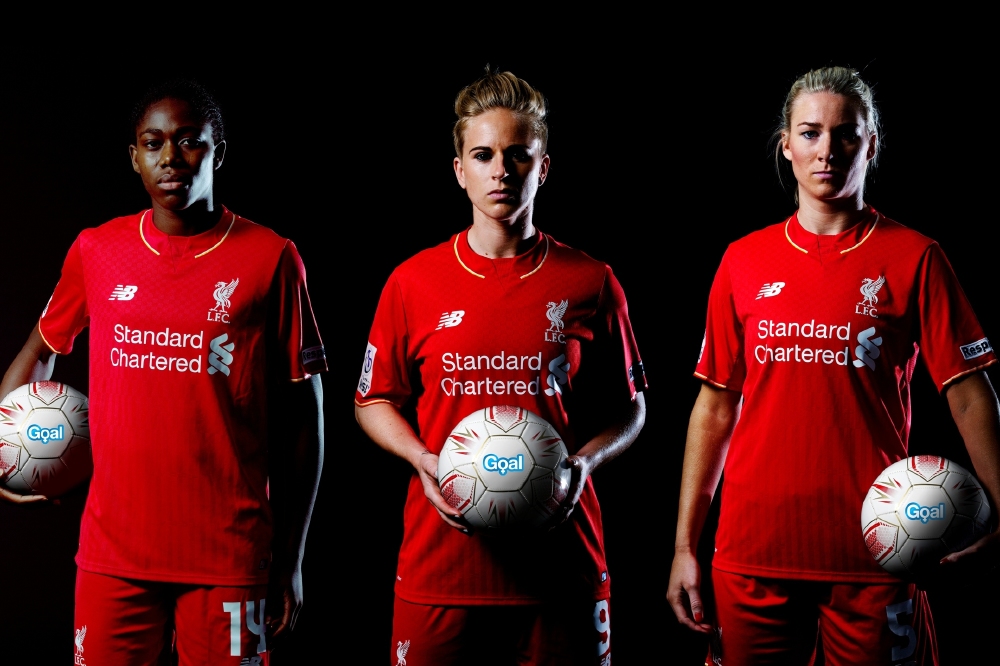Broadcasting across 187 territories, the 2015 FIFA Women's World Cup signified a huge leap in the evolution of women's football, with a championship that would go on to capture the attention of the world, firmly shifting opinions that women's sport is something only 'tolerated' institutionally.

(L-R) Asisat Oshoala, Natasha Dowie and Gemma Bonner of Liverpool Ladies FC
Despite the huge milestone being achieved, there's still a largely uneven playing field for the women's game when compared to their male peers, with the championship not quite being allowed to shed light on the legal, cultural, social and domestic disparities that continue for girls and women across the world.
Because of this, today Standard Chartered launched #ThisGirlsGoal - a brand new social media campaign associated with their Goal programme, delivered in partnership with Liverpool Ladies Football Club.
The campaign will invite women around the world to share positive statements about the barriers or gender perceptions they're hoping to personally smash to @GoalGirlsGlobal on Twitter, using the hashtag #ThisGirlsGoal.
Launched first in 2006, the Goal programme continues to inspire young women around the world through sport, providing adolescents with tools to challenge stereotypes and break down barriers to give themselves a more meaningful and enriched life.
Goal is run in partnership with leading non-profit organisations and offers weekly sessions to youngsters from urban communities, helping them come to terms with themselves and their role in the world.
So far the programme has reached over 146,000 girls in 26 countries around the globe, and aims to reach a total of 600,000 by the end of 2018.
At the centre of the new campaign are Liverpool footballers Asisat Oshoala, Natasha Dowie and Gemma Bonner who use their own football prowess to smash oppressive statements that have long reigned over the perception of their sport.
Fara Williams, the most capped player in England Lionesses' history recently revealed that a challenging childhood was made easier with football.
She explained: "I know from my own experience that it's so important that we provide young girls with a clear pathway, irrelevant of their beginnings. We're all aware that we're in a position to change perceptions and provide greater opportunities for the next generation, but these are only words.
"As footballers, we have a responsibility to ensure that the evolution of the women's game travels beyond the world of sport and transpires within everyday life. That is what Goal is all about and I am delighted to be involved."
Asisat Oshoala, the first African to ever play in English women's football added: "The school I attended didn't have a female football team; it was just men that played. My parents didn't really want me to play football, but when you are determined, sometimes you convince people with your attitude and with your commitment.
"You have to set an example for other people and I feel that I have a role to play through my profession. I started off on the dusty pitches of Nigeria and now I am playing at the top of the women's game; anyone can do it! I am still young, but there are a lot of girls worldwide looking up to me that I hope to inspire further."
#ThisGirlsGoals was launched today in the UK, and will across the next 12 months be rolled out across the 26 countries the Goal initiative currently operates in.

